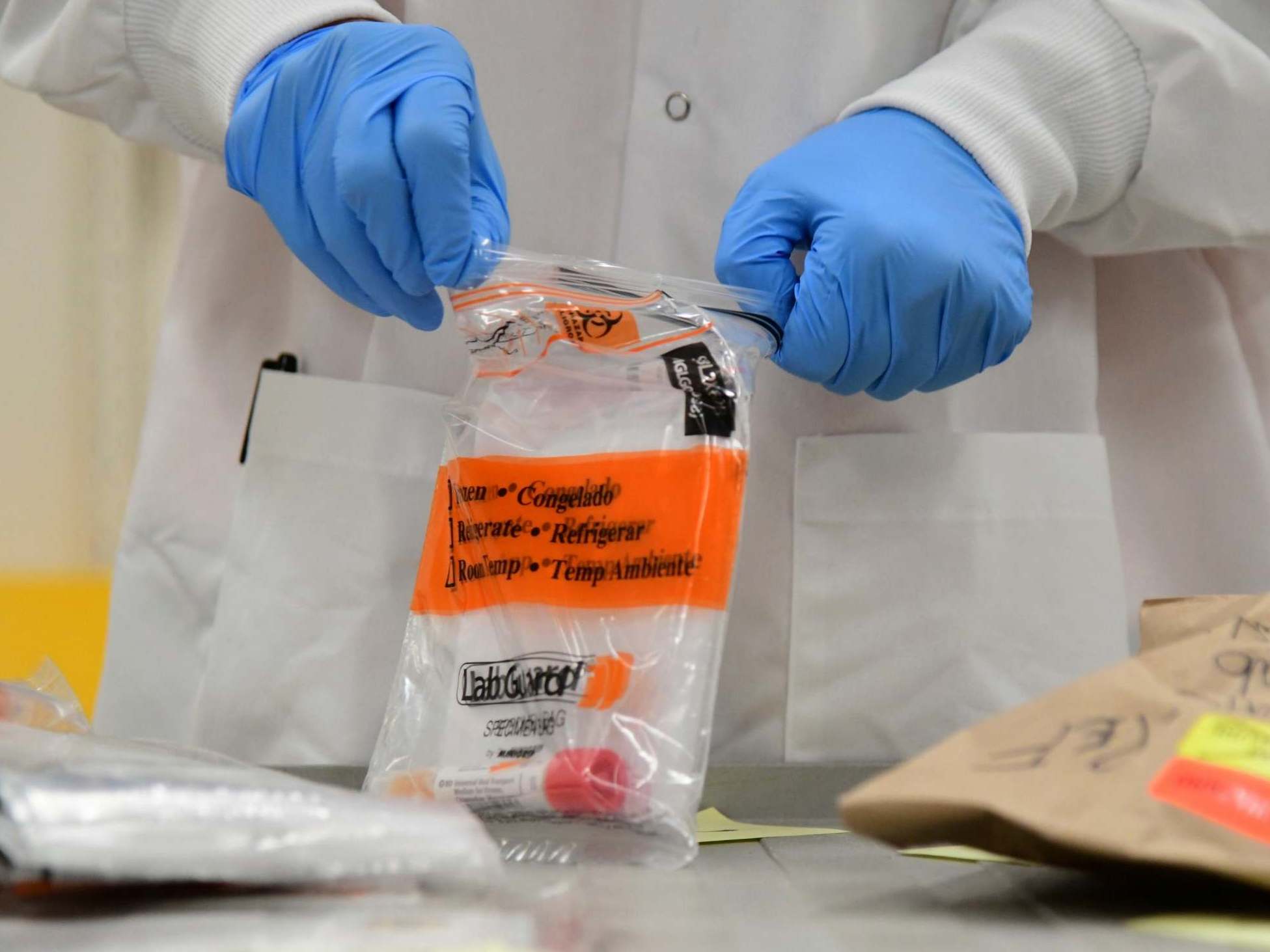Coronavirus: Firefighters demand priority testing to prevent ‘dangerously low’ staffing levels
Exclusive: ‘Fires and other non-virus related emergency incidents won’t wait for this crisis to subside,’ says union

Your support helps us to tell the story
From reproductive rights to climate change to Big Tech, The Independent is on the ground when the story is developing. Whether it's investigating the financials of Elon Musk's pro-Trump PAC or producing our latest documentary, 'The A Word', which shines a light on the American women fighting for reproductive rights, we know how important it is to parse out the facts from the messaging.
At such a critical moment in US history, we need reporters on the ground. Your donation allows us to keep sending journalists to speak to both sides of the story.
The Independent is trusted by Americans across the entire political spectrum. And unlike many other quality news outlets, we choose not to lock Americans out of our reporting and analysis with paywalls. We believe quality journalism should be available to everyone, paid for by those who can afford it.
Your support makes all the difference.Union leaders have called for firefighters to receive coronavirus tests to prevent staffing levels plummeting to “dangerously low levels” as hundreds of staff are forced to self isolate.
The Fire Brigades Union (FBU) has written to the health secretary Matt Hancock and James Brokenshire, the security minister, to raise concerns about their ability to protect the public if firefighters are self-isolating unnecessarily.
Boris Johnson has vowed to accelerate testing for the virus from current levels of 5,000 a day, but the government is under pressure to roll out testing to all NHS staff to prevent the health service from buckling.
Only those in hospital are being routinely tested for coronavirus, prompting concern healthcare workers could also be spreading the virus unknowingly.
More than a million people signed a petition calling for mass testing of health professionals, who have to stay away from work without knowing if they have the virus.
Matt Wrack, the FBU general secretary, said NHS staff should be the priority, but called on ministers to consider testing all emergency service workers to prevent significant staffing shortages.
The London Fire Brigade has at least 280 personnel in isolation, five per cent of its overall staff, while the West Midlands Fire Service has 105 staff in self-isolation (5.5 per cent), the union said.
The Scottish Fire and Rescue Service has 3.75 per cent of its firefighters out of action, while Essex County Fire and Rescue Service has 61 staff in isolation or four per cent.
Fire services are already operating with 11,500 fewer firefighters than in 2010.
Mr Wrack told The Independent: “In this time of national crisis, every emergency service worker has an important role to play.
“The NHS is an obvious priority, but any testing regime needs to address all key public services.
“Without proper testing, the number of fire and rescue personnel available could drop to dangerously low levels. Fires and other non-virus related emergency incidents won’t wait for this crisis to subside and ministers need to consider that carefully.
“It is vital for public safety that firefighters and control staff, like their colleagues in the NHS, receive priority testing and, once available, vaccination.
“We’re pushing for measures to limit our members’ exposure to the virus, but some interaction with the public cannot be avoided and ministers need to manage that risk.”
Firefighters have been ordered to stop non-essential interactions with the public, but they continue to come into contact with people in emergencies.
Union bosses are also concerned about control room staff who can cover areas of up to five million people from a single room. If one member of staff contracts the virus, the emergency call infrastructure for an entire region could be at risk.
A government spokesperson said: “Firefighters and our frontline emergency services are doing incredible work responding to the coronavirus outbreak, and are leading community efforts to support the most vulnerable.
“At this time, Public Health England, NHS England and the Department for Health and Social Care have agreed that testing is prioritised for those at most risk of severe illness from the virus to help save lives.
“We are working very closely with all emergency services to ensure they have the resources they need to carry out their vital roles and to keep people safe.”
It comes as the number of people to die from coronavirus reached 233, with a 41-year-old patient thought to be the youngest victim in the UK since the outbreak began.
All 53, whose deaths were announced in England on Saturday, had underlying health conditions and the eldest was 94, according to NHS England.
Subscribe to Independent Premium to bookmark this article
Want to bookmark your favourite articles and stories to read or reference later? Start your Independent Premium subscription today.
Join our commenting forum
Join thought-provoking conversations, follow other Independent readers and see their replies
Comments